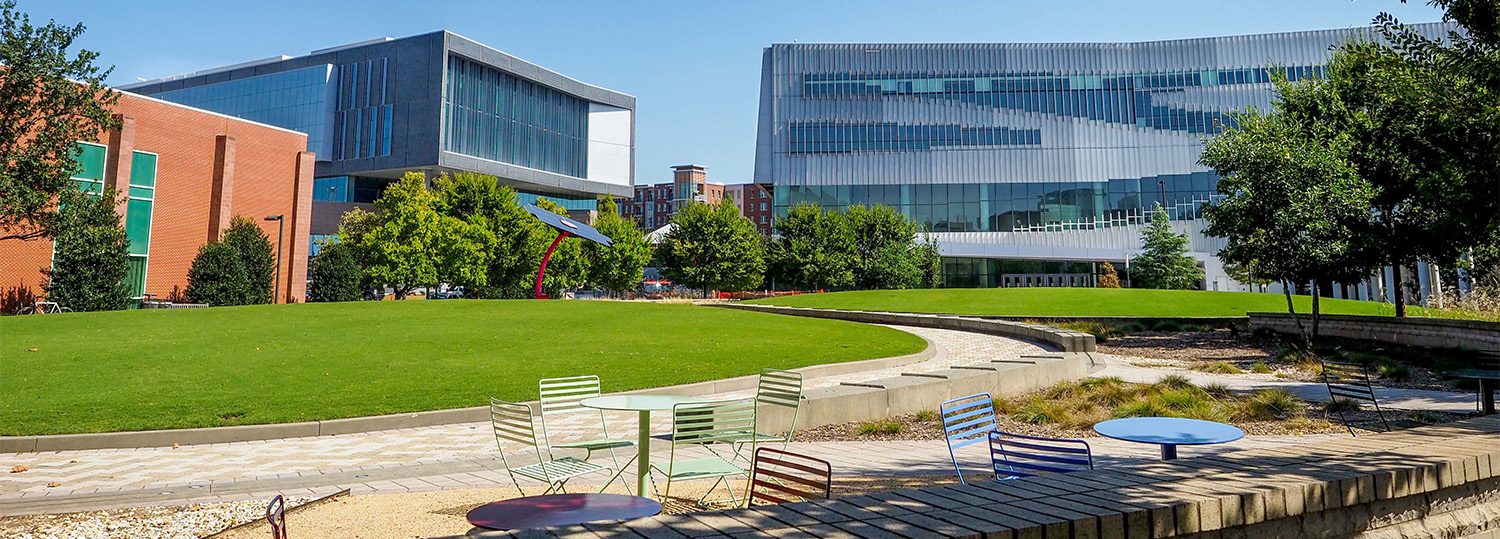
Undergraduate Education
“Welcome to our family, where we think, do and design the materials that drive our future.”
– Dr. Donald Brenner, Kobe Steel Professor and MSE Department Head
What is Materials Science and Engineering?
Most of the technological innovations that we enjoy today are driven by the discovery of new materials. The future of our world depends on the discovery of new materials that are environmentally friendly, lightweight, sustainable and responsive.
The design of novel materials will enable vehicles that are lighter and more fuel-efficient due to redesigned frames and tires; cell phones and laptops with ultra-thin damage-resistant glass for displays; biomaterials that repair and replace parts of the human body; soft robots that can safely interact with humans; new bionics; and materials for water purification.
MSE at NC State
The Department of Materials Science and Engineering at NC State is well-known as a small and friendly department that provides unique and high-impact opportunities for undergraduate students.
Program Highlights
- Consistently ranked in the top 20 nationally by US News and World Report
- Two concentration options: Nanomaterials and Biomaterials
- A 5-year Accelerated Bachelor’s/Master’s (ABM) program is available for advanced study and further specialization.
- Small class sizes and close interactions with world-renowned faculty
- Hands-on laboratory courses in our state of the art facilities
- Undergraduate research opportunities
- Two-semester capstone senior design sequence
With the background knowledge in science, engineering, critical thinking and teamwork provided by the MSE curriculum, our alumni are expected to achieve one or more of the following within five years of graduation:
- Practice materials engineering in appropriate academic, industrial, government or entrepreneurial organizations.
- Earn an advanced degree, such as M.S., Ph.D. or M.B.A., leading to a career in academia, research and development or technical management.
- Be promoted into leadership roles in their chosen career.
- Demonstrate by their participation in technical societies, community service and professional activities a high degree of service and ethical responsibility to their professional field and the community.
Students will develop:
- an ability to identify, formulate, and solve complex engineering problems by applying principles of engineering, science, and mathematics
- an ability to apply engineering design to produce solutions that meet specified needs with consideration of public health, safety, and welfare, as well as global, cultural, social, environmental, and economic factors
- an ability to communicate effectively with a range of audiences
- an ability to recognize ethical and professional responsibilities in engineering situations and make informed judgments, which must consider the impact of engineering solutions in global, economic, environmental, and societal contexts
- an ability to function effectively on a team whose members together provide leadership, create a collaborative and inclusive environment, establish goals, plan tasks, and meet objectives
- an ability to develop and conduct appropriate experimentation, analyze and interpret data, and use engineering judgment to draw conclusions
- an ability to acquire and apply new knowledge as needed, using appropriate learning strategies.
MSE Engagement
Learn about the many ways to enhance your undergraduate experience in the MSE Department.
Career Prospects
An MSE degree is interdisciplinary and, upon graduation, will qualify you for a variety of jobs with an average starting salary of $60-70k per year.
Example Job Titles
Materials Engineer, Product Engineer, Metallurgist Engineer, Quality Control Engineer, Failure Analysis Engineer, Renewable Energy Materials Engineer, Biomaterial Engineer, Polymer Materials Engineer, Project Manager
Example Job Description
- Identify and produce a diverse range of materials for applications of interest
- Develop and improve methods for the analysis of complex materials
- Assist in the selection of materials for product application, the calculation of design parameters, the performance of material properties testing
- Apply scientific methods to resolve technical challenges related to materials and their use in products and processes
Advanced Degree Opportunity
More than 25 percent of all MSE B.S. degree recipients enroll in a graduate degree program at places such as MIT, UC Berkeley, Penn State, Georgia Tech, Purdue, and NC State.